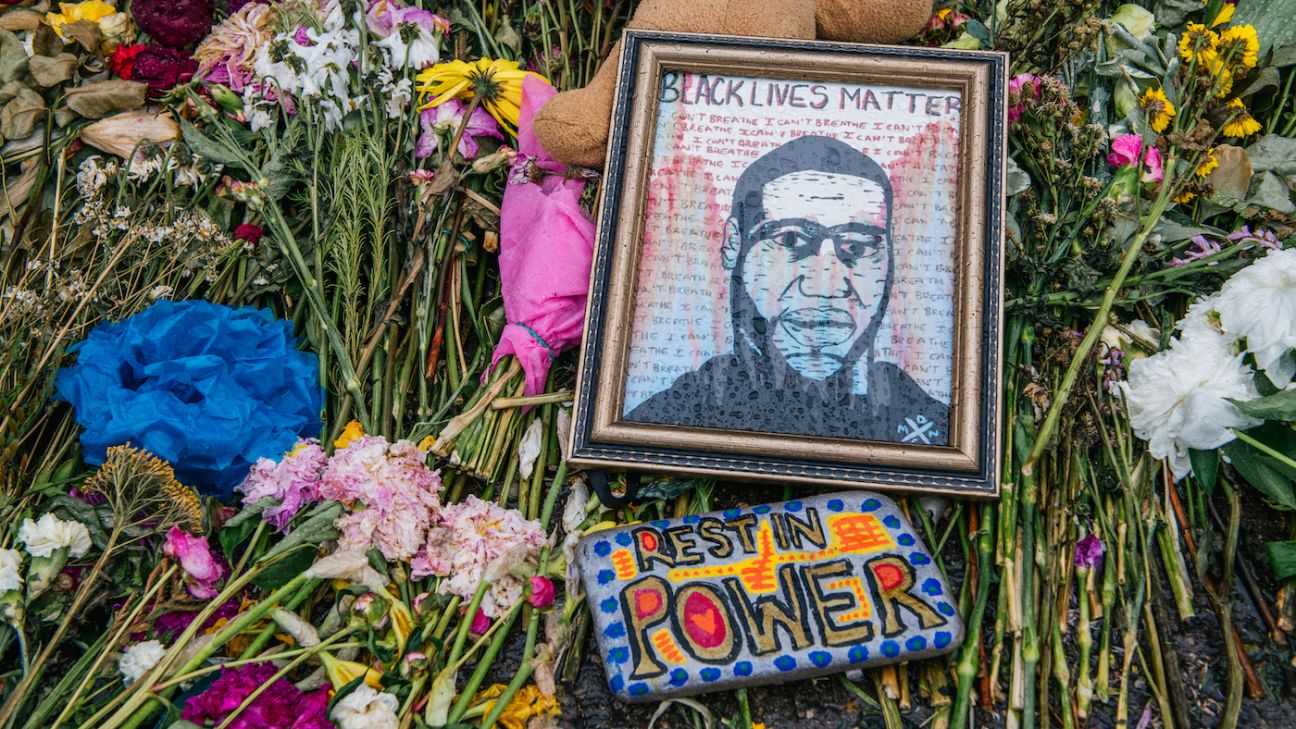The ICC could loosen its interpretation of a playing code and take a “common sense” approach to players who may “take a knee” or wear and display slogans as a mark of solidarity to the ‘Black Lives Matter’ movement – a move that will bring it in line with organisations such as FIFA.
In the past, the ICC has acted when players have made statements that could be considered political. Most recently it disallowed former India captain MS Dhoni from wearing wicketkeeping gloves with the dagger insignia during the 2019 World Cup. Dhoni, the ICC said, had breached two clauses of the clothing and equipment regulations: one relating to display of “personal messages” and the other concerning the logo on his glove. Dhoni is an honorary lieutenant-colonel in the Parachute Regiment of the Indian Territorial Army and the dagger is similar to the regimental emblem.
In July 2014, ICC match referee David Boon had asked England allrounder Moeen Ali to remove wristbands bearing the slogans “Save Gaza” and “Free Palestine”, during a Test against India. Boon told Ali that he was not permitted to wear the bands under the ICC’s Clothing and Equipment regulations, although the ECB had defended Ali’s stance as humanitarian (rather than political). Boon pointed out that teams were not allowed to make such statements during a match.
However, in the wake of George Floyd’s death in the USA, and the feeling of strength it has generated across the world to protest against racism, the ICC will treat displays of solidarity by players on a “case-by-case basis”.
“The ICC stands against racism and is proud of the diversity of our sport,” an ICC spokesperson told ESPNcricinfo. “We support players using their platform to appropriately express their support for a more equitable society. We will exercise a common sense approach to the implementation of regulations in relation to this issue and they will be assessed on a case-by-case basis by the match officials.”
The ICC regulation on statements that veer outside the confines of sport are clear: “Approval shall not be granted for messages which relate to political, religious or racial activities or causes.” The ICC has also listed “guidelines” for determining the nature of the message: “cricket should be used as a tool to bring people and communities around the world together and not as a platform to draw attention to potentially divisive political issues, rhetoric or agendas.”
The rules say that each message will be examined on a relevant set of circumstances including if it is a “one-off” statement and what is the “purpose and impact of conveying” it.
“By way of example only, and without limitation, where the purpose of a message appears to be commemorative in nature (e.g. the use of a black armband or a poppy) or to serve a charitable purpose (e.g. to generate funds or awareness for a non-political charitable cause), it is more likely to be permitted; where a message appears to indicate support for a particular government, political party or individual, it is more likely to be prohibited.”
Floyd, a 46-year-old black man, died on May 25 in Minneapolis, after a white police officer, Derek Chauvin, restrained Floyd by pressing down on his neck with a knee for nearly nine minutes while he was handcuffed. Chauvin is facing a second-degree murder charge and three other policemen have been charged for abetting.
The incident triggered massive protests across the world from North Carolina (where Floyd came from) to New Zealand with people bypassing the warning from the World Health Organisation which discouraged social gathering due to the Covid-19 pandemic.
ALSO READ: Daren Sammy, Chris Gayle raise voice against racism in wake of George Floyd killing
Many protesters have “taken a knee” referencing Colin Kaepernick, the former National Football League (NFL) quarterback, who famously kneeled during a rendition of the US national anthem at an NFL game while representing San Francisco 49ers to protest police brutality and racial injustice in 2016. Kaepernick was reprimanded by the NFL and has not played since then.
Athletes including Anthony Joshua, the world heavyweight boxing champion, and tennis legend Boris Becker joined the protests in London over the last weekend. West Indies allrounder Carlos Brathwaite was also part of the march on June 6 in London wearing a “Black Lives Matter” T-shirt.
The protests over the past two weeks, though, have forced sports bodies to relook at rules governing peaceful protests by athletes. Last Friday the NFL commissioner Roger Goddell admitted that the league had “erred” in how it had dealt with player protests, without naming Kaepernick.
Recently FIFA, too, weighed in saying football authorities should use “common sense” and be more flexible without simply slapping the player with the laws which do not allow any form of protest during play.
